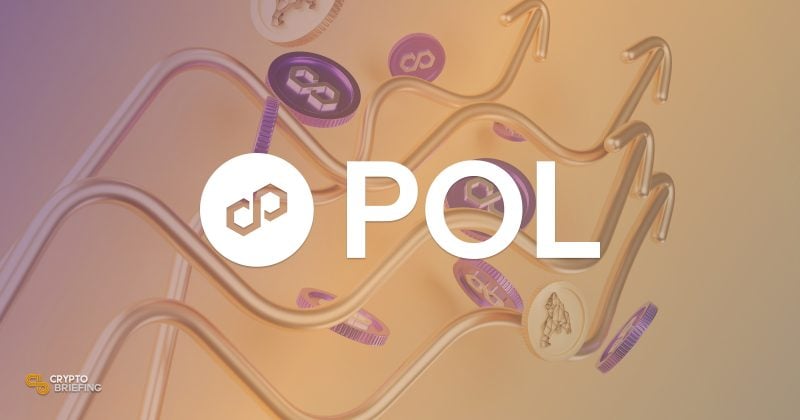
Photo by Guerilla Buzz on Unplash, with modifications from author.
Polygon begins migration from MATIC to POL, boosting its ‘hyperproductive’ utility
Polygon's native token upgrade seeks to enhance network participation and fee generation capabilities.
Polygon has executed a key technical upgrade, converting its native MATIC cryptocurrency to the new POL token on a 1:1 basis. The upgrade, effective September 4, aims to enhance the token’s utility and pave the way for Polygon 2.0.
The POL token now serves as the network’s native gas and staking token, marking a significant step in Polygon’s evolution. Marc Boiron, CEO of Polygon Labs, emphasized that this upgrade will better enable community participation in the network’s growth.
“Now that there are 2% emissions being introduced through this upgrade, it’s going to give an opportunity for the community to participate,” Boiron said in an interview, adding that prior to the full migration, the community grants program had already created emissions for community use.
Polygon’s token, currently the 21st largest cryptocurrency with a $3.7 billion market capitalization, underwent this upgrade following extensive community discussions and consensus-building over the past year. The change is a crucial part of Boiron’s broader vision for Polygon 2.0.
From MATIC to POL
A key objective of the upgrade is to transform POL into a “hyperproductive” token. Unlike its predecessor MATIC, which only earned fees from gas and staking, POL will generate fees from additional actions. Crypto Briefing previously covered further details expected from the upgrade in a recent article. These include staking to secure data availability and decentralizing sequencers, with more fee-generation options planned for the future.
Working towards a ‘hyperproductive’ token system
Boiron describes this hyperproductive token as the next evolution beyond Ethereum’s ETH, which is limited to earning gas fees from transactions. “POL goes one step further and as it gets kind of embedded in the different things in the Polygon Network, it becomes hyperproductive in the sense that it can actually earn fees from multiple different sources,” he explained.
For MATIC holders, there is no hard deadline for upgrading their tokens. All staked MATIC will be automatically converted to POL without additional action required. The testnet upgrade was successfully executed on July 17, paving the way for the mainnet implementation.
The new POL token will also play a crucial role in Polygon’s AggLayer, an aggregation layer similar to a cross-chain interoperability protocol. This development is part of the broader Polygon 2.0 vision, which aims to provide “infinite scalability” by unifying all blockchains, including Layer-1 networks like Ethereum and Bitcoin.
